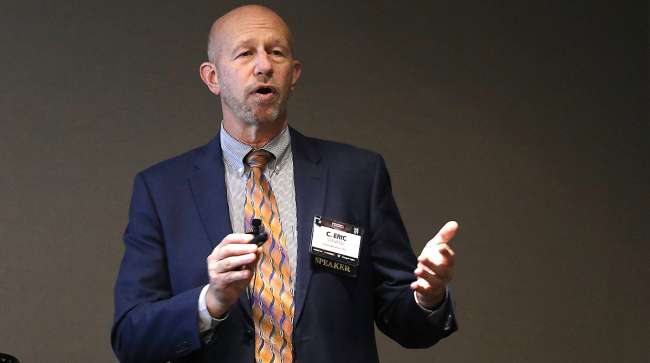Senior Reporter
Trucking Advised to Prepare for Vaccine Mandate as Courts Review Case

[Ensure you have all the info you need in these unprecedented times. Subscribe now.]
NASHVILLE, Tenn. — A federal law that would mandate vaccinations or regular COVID-19 testing for companies with more than 100 employees is being challenged in court, but one expert noted that the uncertainty around the rule stretches beyond the fundamental question of whether the government can enforce it.
“These are treacherous times for employers,” said attorney C. Eric Stevens, a shareholder/partner who specializes in employment law with the Nashville-based firm Littler Mendelson, during a Nov. 8 presentation at the 18th annual Conversion Interactive Agency Recruitment and Retention Conference.
“Government mandates are a politically charged issue,” he added, and in the case of the vaccine mandate, “a very important issue for transportation.”
The Occupational Safety and Health Administration on Nov. 4 announced a rule that would require private companies with 100 or more employees — including trucking companies — to ensure that their workers are COVID-19 vaccinated, or, if not, are tested regularly.
The rule was set to take effect Jan. 4, 2022. However, the 5th U.S. Circuit Court of Appeals on Nov. 6 granted an emergency stay of the requirement.
On Nov. 9, American Trucking Associations and a coalition of state trucking associations and industry groups filed a separate lawsuit challenging the Biden administration over the mandate. The lawsuit alleges that OSHA has overstepped its authority with the law, and said the mandate if adopted would significantly harm the economy and could negatively affect the transportation workforce.
While the White House is urging businesses to move forward with the requirements, Stevens noted that questions remain regarding how a motor carrier would implement the rule if it were ultimately required to do so.
“How we manage exemption requests, that’s a hot-button issue,” Stevens said. “How do you obtain proof of vaccinations? That becomes tricky based on the size of your company and what state you are operating in — or states you operate in.”

John Sommers II for Transport Topics
READ MORE
Numerous states had already come forward with challenges to the law by the time of Stevens’ presentation, and leaders from his home state of Tennessee had also voiced concern. That includes Gov. Bill Lee, Attorney General Herbert Slatery and members of the state Legislature. The ATA suit was filed after his presentation.
“Many states, including the one that we are currently in, have enacted [their] own laws,” Stevens said. “Often, the states feel they need to combat the federal government’s actions, and we have competing state laws and federal laws. OSHA takes the position that OSHA pre-empts state laws, and those states disagree with that. So, there are some issues to be aware of.”
Stevens said the ongoing uncertainty is putting trucking industry officials in a very tough position.
“What it’s left for you is that you have federal guidelines that conflict with state guidelines, and you have state guidelines that say, ‘If you violate our state guidelines, you very well may be sued by individuals that are adversely affected’ — regardless of what the federal government says,” he said.
Stevens urged motor carriers to develop internal policies while the federal law makes its way through the courts.
“When someone says they don’t have a COVID policy, I say, ‘Yes, you do. It may just be the way things are, but yes, you do have a COVID policy. And you might want to have one that’s a little more formalized.’ ”
Want more news? Listen to today's daily briefing below or go here for more info:



